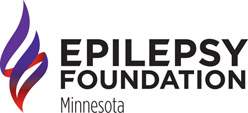Posted by

Pediatric Epilepsy Syndromes
by Dr. Lily Wong-Kisiel, M.D., Mayo Clinic
A syndrome diagnosis is supported by a collection of symptoms that characterize a medical condition. Epilepsy syndromes are classified by the age of seizure onset, seizure type or types, developmental history, brain imaging, and EEG findings. Accurate classification of specific pediatric epilepsy syndromes can be important for prognosis and treatment. Some epilepsy syndromes are age-limited whereas others require lifelong therapy. Some epilepsy syndromes respond particularly well to certain medications and can be worsened by others. Here are some of the best classified pediatric epilepsy syndromes, according to age of onset.
Mayo Clinic Video Asset:
Neonatal and Infantile Onset Epilepsy
Seizures beginning during first weeks of life:
- Benign neonatal and benign infantile epilepsies. Seizures may be frequent initially but typically resolves by the second year of life. Development is normal. Although gene mutations are associated, there may or may not be a family history of epilepsy.
- Ohtahara syndrome and early myoclonic epilepsy of infancy. Suppression-burst pattern is the characteristic EEG pattern. Tonic seizures are the main seizure type for Ohtahara syndrome and myoclonic seizures for early myoclonic epilepsy of infancy. Investigation for brain structural abnormalities and genetic causes should be pursued. Seizures are difficult to treat, and severe developmental delay is typical.
Seizures beginning during infancy:
- Migrating focal epilepsy of infancy. Seizures shift among different locations, are difficult to treat, requiring lifelong therapy. Severe developmental delay is typical.
- West syndrome. Infants have epileptic (infantile) spasms, developmental regression around 4-6 months of age, and the EEG shows hypsarrhythmia pattern. Epileptic spasms are simultaneous head drop, elevation and extension of the arms and legs, and forward bending at the waist. Epileptic spasms often occur in clusters and upon awakening or falling asleep. Successful treatment with adrenocorticotropic hormone (ACTH) or vigabatrin can prevent further developmental regression. Many children develop other seizure types and go on to have Lennox-Gastaut syndrome (see information below).
- Dravet syndrome. Seizures begin around 6 months to 1 year of age. Prolonged febrile seizures occur in majority of patients and can present as alternating hemiconvulsions. Temperature sensitivity such as elevated body and environmental temperature are known triggers. Other seizure types later emerge including absence, myoclonic, tonic, and primary generalized tonic seizures. Seizures are difficult to treat, and severe developmental delay is common. Sodium channel SCN1A mutation accounts for most cases. Effective antiepileptic drugs include clobazam, valproic acid, and stiripentol. Lamotrigine, carbamazepine, oxcarbazepine can worsen seizures.
Childhood Onset Epilepsy:
- Childhood absence epilepsy: Absence seizures appear as few seconds of staring, eye blinking, automatic movements (chewing, hand rubbing). Absence seizures are frequent, up to dozens a time per day when not treated. The EEG shows 3-Hz spike and wave discharge. Development is normal. Effective first line antiepileptic drugs are ethosuximide, lamotrigine, and valproic acid.
- Benign epilepsy with centrotemporal discharges: Is one of the most common focal epilepsies of childhood. If witnessed at onset, the child may be aware, has contraction of one side of the face, numbness and tingling around the mouth, with problems with motor speech function. Generalized tonic-clonic seizure may follow from these focal seizures due to spread of electrographic seizures. MRI is normal. EEG shows epileptiform abnormalities from the central and temporal head regions. Seizures may be rare and not require treatment. In patients with frequent seizures, antiepileptic drug treatment may be warranted.
- Landau-Kleffner Syndrome and Continuous Spike wave in slow wave sleep: The epileptiform abnormalities seen during sleep EEG in these children is markedly increased compared to awake EEG. Landau-Kleffner syndrome has specific decline in expressive language. Continuous spike wave in slow wave sleep shows global difficulties with worsening attention, behavioral, and learning difficulties. Overnight EEG is required to including sleep state for accurate diagnosis. Specific treatment for Landau-Kleffner and continuous spike wave in slow wave sleep may include high dose diazepam, steroids, or acetazolamide. Some medications, including carbamazepine and oxcarbazepine can worsen the sleep EEG.
- Lennox-Gastaut Syndrome: Patients have multiple seizure types including generalized tonic-clonic seizures, absence seizures, and drop seizures (tonic seizures, atonic seizures, myoclonic seizures), and focal seizures. There is existing developmental delay prior to seizure onset. Seizures are difficult to treat, and severe developmental delay is typical. Multiple medications used in combination is typical. Surgical corpus callosotomy for drop seizures may be an option in selected patients.
- Myoclonic-atonic epilepsy: Is also known as Doose syndrome. Children have normal development prior to seizure onset. Multiple seizure types are present and generalized tonic-clonic seizures can be frequent. Ketogenic diet has been shown to be effective.
Juvenile Onset Epilepsy:
- Juvenile absence epilepsy and juvenile myoclonic epilepsy: Seizure onset is in the teenage years. Treatment with antiepileptic drugs can be effective, but will typically require lifelong treatment given that seizure recurrence happens without antiepileptic drugs. Absence seizure is the major seizure type in juvenile absence epilepsy and myoclonic seizures are prominent in juvenile myoclonic epilepsy. Generalized tonic-clonic seizure can occur in either epilepsy syndrome.
In Conclusion:
A detailed history of seizure types is required for diagnosis of specific pediatric epilepsy syndrome. EEG and MRI are additional tests that may clarify the diagnosis. Continuous video EEG monitoring is helpful when sleep state is required or to record typical seizures to clarify the patient-specific seizure types. Some pediatric epilepsy syndromes can be well controlled with medications and may spontaneously remit in adolescence. Others require with accurate diagnosis and careful selection of antiepileptic drugs to minimize seizure frequency and improve quality of life.
Comprehensive Care for Individuals with Epilepsy:
At Mayo Clinic, the world’s most highly specialized epilepsy experts care for more than 7,000 adults and children with epilepsy every year. By seeking new knowledge through cutting-edge research and groundbreaking clinical trials, our experts improve diagnosis and treatments for epilepsy patients. They take the time necessary to listen, understand symptoms and concerns, and design a personalized treatment plan so each patient gets exactly the care they need.
To learn more and request an appointment, visit MayoClinic.org/epilepsy.
Additional Resources:

